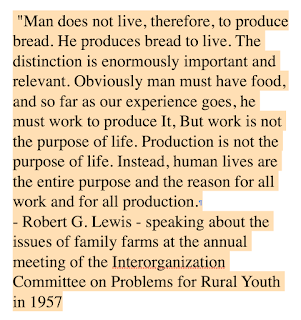In MY opinion, it is inevitable that AI & Robots will perform most of the world's work relatively soon - not in my lifetime, but in my grandchildren's.
1) Available technology has never been suppressed for long, and never will be. Progress is inevitable.
2) The core breakthroughs to enable an AI/Robot-driven world have already been made. What remains is (lots of) refinement, and implementation.
*I* see two very different ways in which our AI/Robot future could play out in society as human labor is no longer needed to perform the world's mind-numbing and repetitive but essential tasks:
1) The widespread availability of AI & Robots COULD be the catalyst for a social revolution that ushers in a society in which the fruits of AI/Robot production are shared by ALL people, with EVERYONE receiving at least enough for a comfortable life. Think #UBI (Universal Basic Income) as the first step in this direction.
2) In the absence of a social revolution that embraces human equality and sharing, *I* see catastrophe awaiting in widespread AI/Robot adoption. AI/Robots *WILL* mostly eliminate the need for human labor to perform mind-numbing and repetitive but essential tasks, so most people *WILL* become "unemployed." Without a sharing of that new-found wealth:
a) Most people would become destitute.
b) The oligarchs would become even more obscenely wealthy in the short term
as they no longer needed to pay wages, BUT...
c) Oligarchs need CUSTOMERS as well as producers. AI/Robots can build a car, for example,
but they don't BUY cars - so the whole system falls apart.
d) ALSO, Destitute people become desperate and take ACTION, SO IMO, the social revolution will happen later if not sooner, and if delayed too long might not be a peaceful revolution.
What would people DO with themselves if they didn't have to labor at mind-numbing and repetitive tasks? Write poetry (as John Quincy Adams suggested), hike the Appalachian Trail, study (science, history, literature, a thousand other things), spend time with their grandchildren and their grandparents. It is tragic that humanity has been all-consumed with "work" for so long that we even need to ask what we could do without "work."



